When Jed Speare died earlier this spring, Boston's experimental arts community lost a pioneering artist, a tenacious advocate, a dear colleague, and an even more dear friend. Jed was best known for his work as a composer and sound artist, but his work was truly multidisciplinary, encompassing video, installation, and performance. He was just 62 years old at the time of his death and in spite of the obstacles and frustrations of illness, he was still working on a variety of artistic projects.
I first met Jed before a concert that I was organizing in a Melcher Street loft in Fort Point in early 2007. Jed had put together a performance at the Studio Soto space down the street and stopped by to see about cross-promoting, collaborating, or at least not so inadvertently and directly competing in the future. We talked briefly, but it was only after he left, as I looked at his name on the flyer that he’d slipped into my hand, that it dawned on me that I already knew Jed through his groundbreaking work of phonography, Cable Car Soundscapes (http://www.folkways.si.edu/cable-car-soundscapes/sounds/album/smithsonian), which was released on Valiant Records in 1982 and Folkways Records in 1983.
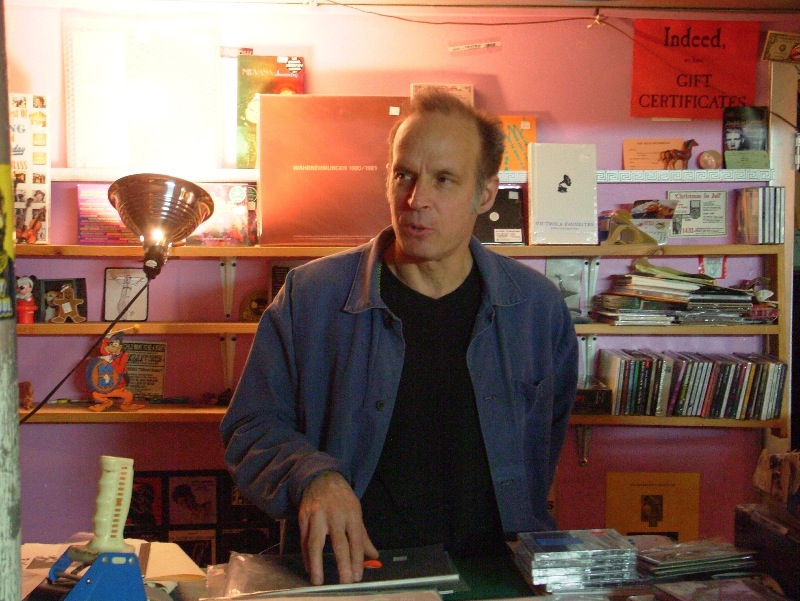
Jed Speare (2008) at Twisted Village record store. Photo: Bill T. Miller.
In the months since Jed’s passing, I have regularly returned to recordings of his work, listening in an effort to both process the loss and preserve him in memory. There are a pair of excellent collections—Sound Works 1982-1987 (Family Vineyard) and The Wounds of Returning – Sound Works II, 1974-1983 (Farpoint Recordings)—that document the breadth of Jed’s practice, which ranged from traditional composition to text-sound poetry, from tape collage to phonography.
At a recent memorial event for Jed, John Mallia of the Electronic Music Studio at the New England Conservatory played back the full Cable Car Soundscapes album. Sitting among Jed’s friends and colleagues, I realized that it had been years since I’d listened to the full album that had served as my introduction to Jed. I’d often cue up the final track—an extraordinary tape collage called “Mettle of Metal,” which is also included in the recent Farpoint Recordings collection—but in my enthusiasm for that specific piece, I’d forgotten just what a fantastic project it is in its entirety.
The bulk of the album is documentary in nature, capturing the dull roar of the cable car barn (the sounds of the metal cables is haunting and intense), the iconic bell rings, and the hum and clatter of the trains on the tracks. The industrial sounds of the machinery interspersed with interviews with operators, riders, and self-described cable car “groupies” (apparently such people existed) that reveal an unexpectedly iconoclastic and eccentric subculture, that is as vivid and particular as this very specific industrial soundscape.
At its core, it is a project about loss. When Jed was making the recordings in the summer of 1982, the cable cars were due to be shut down for a year for technical upgrades and the fate of the workers and the future of the entire system was in doubt. Jed was there to document and preserve a soundscape in peril—“the final days, the end of an era,” an operator laments—which he does without being overtly sentimental or romantic.
At the time of the recording, Jed had been living in San Francisco for two years and was active in the underground music scene there, playing with bands such as Ultrasheen, Appliances, and Research Library. He had moved west after reading the Canadian composer R. Murray Schafer’s influential work of acoustic ecology, Tuning of the World, in order to participate in Schafer’s World Soundscape Project at Simon Fraser University in British Columbia. The influence of Schafer’s ideas on Jed’s work, and early on with Cable Car Soundscapes, was profound.
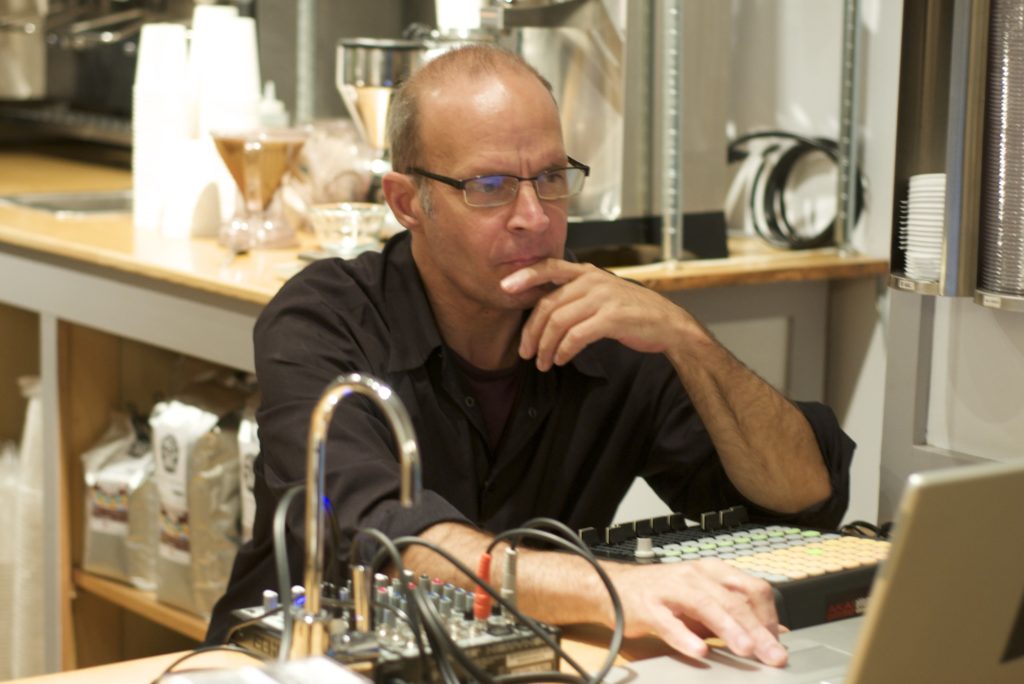
Jed Speare (2011) live at Café Fixe (Non-Event). Photo: Susanna Bolle
As a phonographer, Jed often sought out the sounds of industry and infrastructure, but he was interested in the sonic environment as a whole, collecting sounds both natural and manmade. “You genuinely keep an open mind,” he said, in a 2011 Boston Globe interview on the work of a phonographer, “and recognize that the next great collection of sounds could come from the river behind your house or even your cell phone.” He valued the sounds for themselves, and through careful listening, found beauty in the unlikeliest of places: the cable car barns in San Francisco, a psychiatric hospital in France, or the massive sewage treatment plant at Deer Island outside of Boston.
When Jed moved back to Boston in the late 1980s, the focus of his artistic interest had shifted to video. Although, as he described it, the compositional principles that he used were similar, only the medium had changed. He would return to sound and composing and in the last decade of his life, in particular, was a key figure in Boston’s experimental music scene. His work as an organizer was critical: he presented concerts at Mobius—where he was a longtime, very active member—as well as at Studio Soto, which provided an essential space for performances, installations, and exhibitions.
Jed’s recent sound work is not well represented in recordings. To my knowledge, there is only one example, a wonderful 2011 piece called “Prana” (on the YDLMIER tape imprint), which he composed using sounds sourced from Boston, Sweden, Poland, and Colorado. Thankfully, there are two forthcoming releases due out on Farpoint Recordings (http://www.farpointrecordings) that will include some of his compositions from the last 20 years.
I have so many memories of listening to live sets by Jed in the decade since we first met. Some of the most vivid of these were as a member of the New England Phonographers Union, which was founded by Jed with fellow phonographer and sound artist Ernst Karel. The concerts were associated with their MWRA project (MWRA stands for Metropolitan Water Resource Association), and made use of extensive field recordings of sites like the Deer Island wastewater treatment plant. The whirrs, clanks, and hums of Deer Island recall, ever so faintly, the industrial sounds of Jed’s early work in San Francisco. And, while there are no human voices or an implicit narrative of loss, as with Cable Car Soundscapes, the work is no less powerful, evocative, and, in spite of their source, beautiful.
“That’s exactly why you’d go out there to find beauty,” he said of Deer Island, “because you would never expect to find it there.”
Jed Speare passed away the morning of March 22. He will be remembered on Monday, July 18, 2016 during a World Listening Day Hour of Remembrance and at "Beyond These Things: A Concert for Jed Speare," at the New England Conservatory at 7pm.
- Jed Speare (2015) live at Mobius, World Listening Day concert (Non-Event) Photo: Susanna Bolle
- Jed Speare (2012) performing as part of the Strange Attractor performance at Studio Soto. Photo: Kristophe Diaz
- Jed Speare (2011) live at Café Fixe (Non-Event). Photo: Susanna Bolle
- Jed Speare (2011) with microphone at Variations 8 performance (by John Cage) at Skowhegan. Produced by David Miller. Participating artists include David Miller, Jane Wang, Jed Speare, Bob Raymond, Larry Johnson, Margaret Bellafiore. At Skowhegan School of Painting and Scuplture. 8/6/11. Photo: Marilyn Arsem.
- Jed Speare (2008) at Twisted Village record store. Photo: Bill T. Miller.

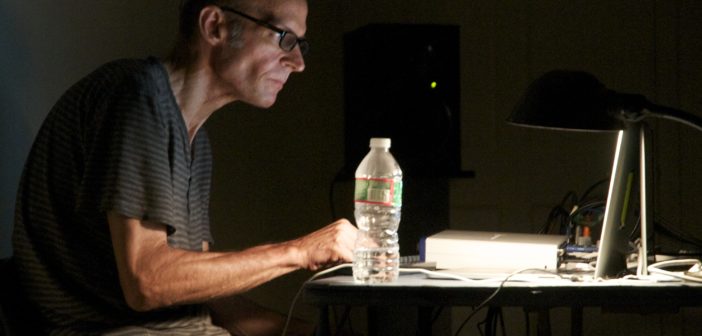
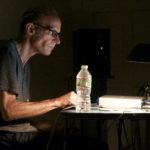
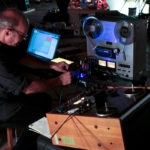
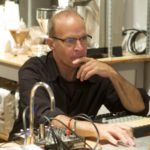
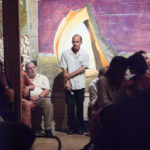
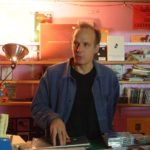
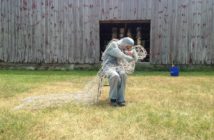
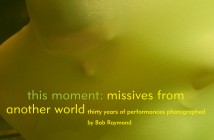
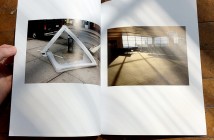
1 Comment
Thanks for this appreciation. Here is a photo of Jed I took last September at Sonic Dreams, Waterford, Ireland.
https://flic.kr/p/z9vqmS